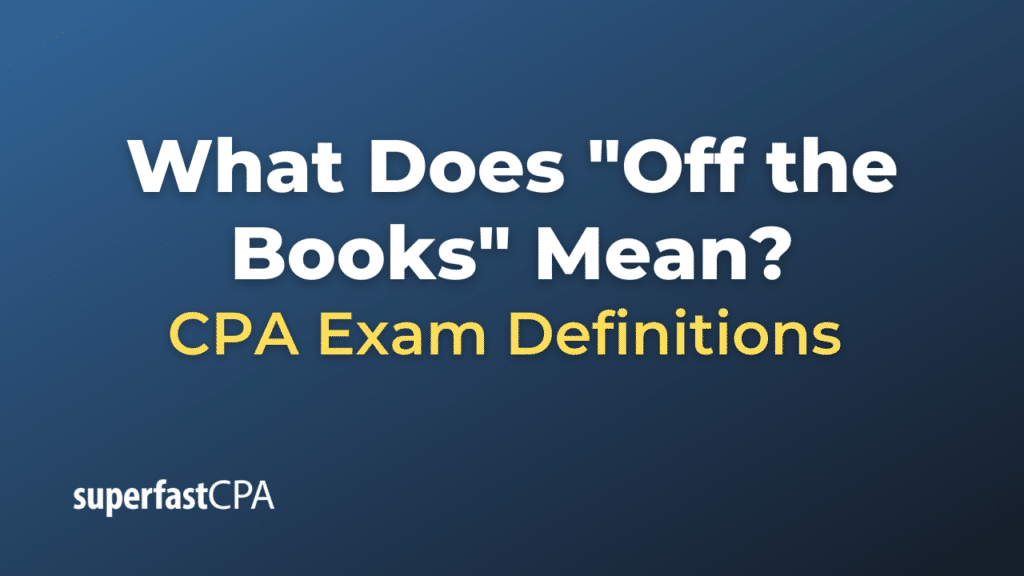Off the Books
The term “off the books” is often used to describe financial transactions, assets, or liabilities that are not recorded on a company’s official financial statements, such as the balance sheet or income statement.
This can be done for several reasons. In some cases, companies might choose to keep certain transactions off the books to improve the appearance of their financial health. For example, by keeping certain liabilities off the books, a company might appear to have less debt than it actually does.
However, it’s important to note that keeping transactions off the books can be associated with fraudulent activity if the intent is to deceive investors, creditors, or other stakeholders about the true financial condition of the business.
On a more benign note, “off the books” can also refer to informal or cash-based transactions that aren’t recorded for tax purposes. For instance, a small business might pay a contractor in cash and not report the transaction to tax authorities. This is also generally considered illegal, as it can constitute tax evasion.
Given the potential for misuse, there are strict accounting standards and regulations that require companies to disclose significant off-balance-sheet transactions and other financial arrangements in the notes to their financial statements. If companies fail to do so, they can face serious penalties from regulators.
Example of “Off the Books”
Suppose there’s a small restaurant called “Tasty Treats.” To save money, the owner decides to hire a part-time cleaner and pay him cash at the end of each week. The owner does not record these cash payments in the business’s financial records or report them to tax authorities.
This is an example of an “off the books” arrangement. While the cleaner is performing work for Tasty Treats and is getting paid for it, none of this activity is officially recorded or reported. It means that the business expenses and liabilities of Tasty Treats are understated, and the owner may be evading employment taxes.
However, it’s important to remember that such “off the books” practices are illegal and can lead to severe penalties if discovered by authorities. They also undermine the integrity of a company’s financial statements , making it harder for stakeholders to understand the true financial condition of the business.













